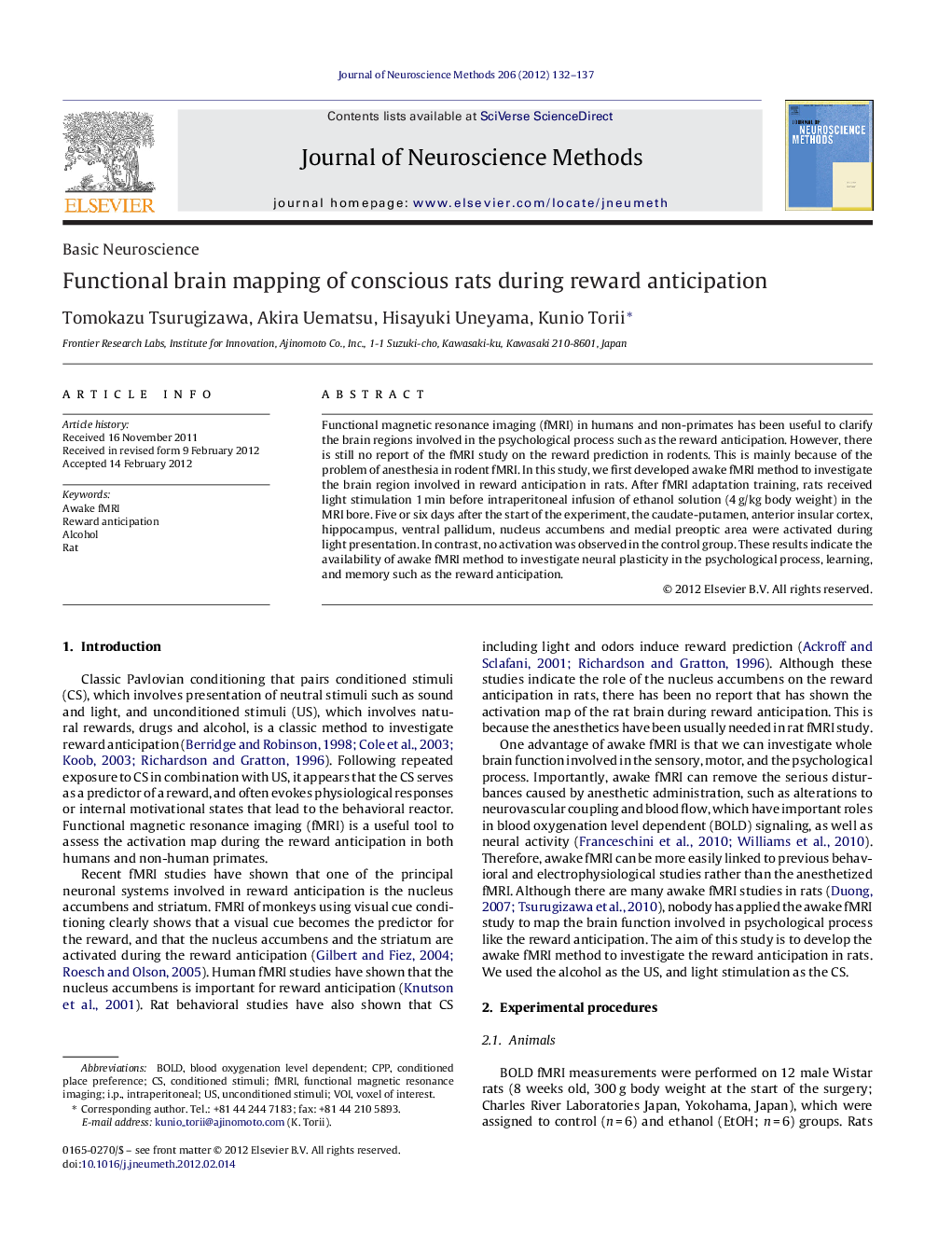| Article ID | Journal | Published Year | Pages | File Type |
|---|---|---|---|---|
| 4335100 | Journal of Neuroscience Methods | 2012 | 6 Pages |
Functional magnetic resonance imaging (fMRI) in humans and non-primates has been useful to clarify the brain regions involved in the psychological process such as the reward anticipation. However, there is still no report of the fMRI study on the reward prediction in rodents. This is mainly because of the problem of anesthesia in rodent fMRI. In this study, we first developed awake fMRI method to investigate the brain region involved in reward anticipation in rats. After fMRI adaptation training, rats received light stimulation 1 min before intraperitoneal infusion of ethanol solution (4 g/kg body weight) in the MRI bore. Five or six days after the start of the experiment, the caudate-putamen, anterior insular cortex, hippocampus, ventral pallidum, nucleus accumbens and medial preoptic area were activated during light presentation. In contrast, no activation was observed in the control group. These results indicate the availability of awake fMRI method to investigate neural plasticity in the psychological process, learning, and memory such as the reward anticipation.
► We developed awake fMRI to investigate the brain regins involved in reward prediction in rats. ► The nucleus accumbens and the ventral pallidum are involved in reward anticipation. ► The insular cortex, striatum and hippocampus are involved in reward anticipation.
